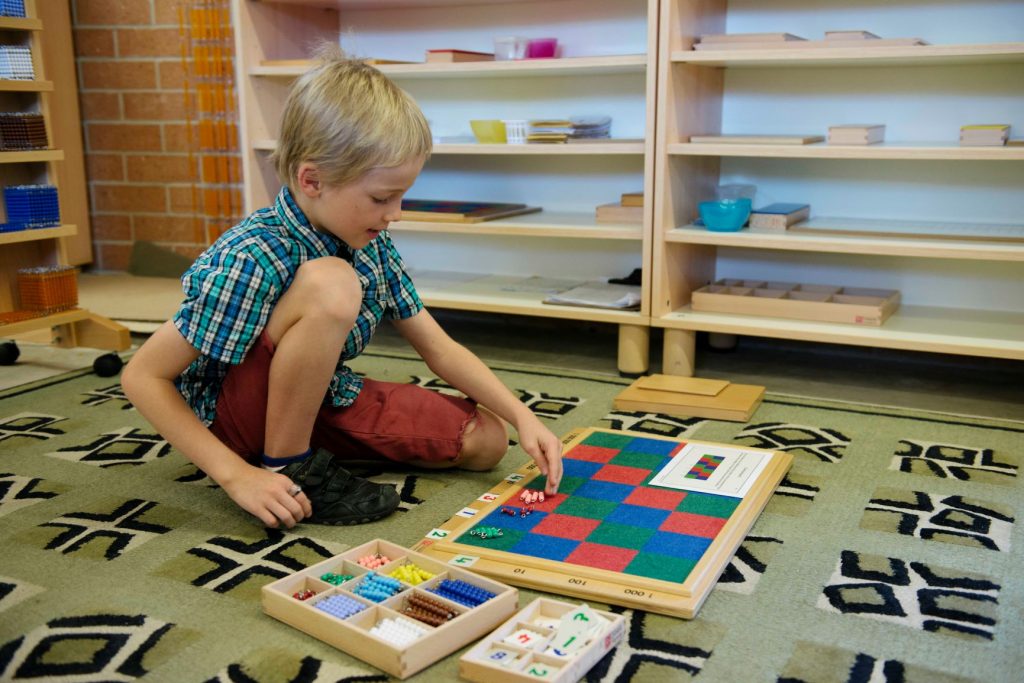By Christine O’Leary
As parents we all get to the point in life when the important decision needs to be made: which school to send our child to?
It’s a good question and at MIC we often get asked: Is Montessori right for my child?
Our answer is: it depends.
It depends how well Montessori matches your expectations with regards to educating your child. It’s important that, whichever school you choose, it is a good fit, not just for your child, but for you – the parents – as well.
And to know THAT – you need to be clear on your own values and goals when it comes to education – and you need to know exactly what a Montessori school has to offer.
It’s important, then, that families that choose a Montessori school understand and subscribe to the philosophy. It’s certainly different than many other schools so it’s good to know what those differences are.
Sometimes families will ‘try out’ a Montessori school because it was recommended by someone else. But a school that is right for one family may not be right for the next – so it’s important to do your own research to determine which school is right for you.
And, of course, changing schools every few years to try out different things is very disruptive for children and the learning communities being created within a Montessori classroom. Far better to research Montessori, understand the school you are enrolling in (ask lots of questions) – and then if it is for you, commit for the long haul. The long-term value of being part of an established school community for the duration of a child’s schooling years cannot be overstated. These students have a far superior school experience than those who have to keep adjusting to new school settings every few years.
So what does a Montessori school offer?
Those of us who choose Montessori for our children generally agree on a few things.
1. Human beings have a natural desire to learn. It is found in children at birth. With the right environment, it is possible to nurture that curiosity and desire to learn throughout a person’s lifetime.
2. Teaching to mastery is key. If there is a variable between understanding of the topic – and time – then understanding takes precedence – with time as the variable. That means – keep working on addition until you understand it before moving to multiplication – even if it takes a little longer. Moving to the next lesson in the sequence because the bell has gone or all of the other students in the class understand it, and you don’t, does not work in the long run. Algebra is going to be pretty tricky if you’re not too confident with multiplication. It’s what we mean when we say we work with each child’s individual needs and strengths. It’s not about what the rest of the class understands – but what this child understands. In a Montessori school learning is about moving from one level of competency to the next – it’s not a process of passing tests and exams or ‘teaching to the test’ to keep everyone moving at the same pace, at the cost of real understanding.
3. Respect is paramount – and reciprocal. Children and adolescents learn how to be respectful by being respected, not through control or domination. Teachers serve as a child or adolescent’s mentor and guide – not a taskmaster or disciplinarian. Learning together as a community helps everyone’s sense of self-worth and empowerment.
4. Learning is fun! It doesn’t have to be a dreary or stressful experience with arbitrary standards met at any cost, but a joyful journey of discovery – of oneself, others around us and the wide, fascinating world we are all a part of.
5. Independence is critical. The foundation of independence made in the home between the age of 0-3 is important and is extended by providing opportunities for children to exercise autonomy and independence as much as possible once they are at school. Children are capable of guiding their own learning.
6. Hands-on learning is key. Children learn best through hands-on, real-world experiences and problem-solving.
7. Collaboration is valued over competition. Learning together as a community and helping one another when asked allows for opportunities to teach – and to learn from – each other. Academic competition smothers creativity and is not an effective way to educate children.
——-
It’s fair to say that a Montessori education is not right for everyone. Montessori requires a certain way of thinking and our approaches can be quite different to those found in most conventional schools.
Families that put a strong emphasis on exams and tests, or who believe that children need to be pushed or require artificial structure to learn, may find that a Montessori school is not right for them.
Similarly, families who are too busy to get involved in school life or to read and respond to school correspondence consistently – may not feel a good fit at a Montessori school where parent involvement is considered paramount. It’s important to have a clear understanding of your school’s expectations and be honest with yourself about what is possible for your family.
If you’ve visited a Montessori school and these fundamental principles resonate with you – then Montessori will probably be a beautiful fit and your family is set to have a wonderful experience.
On the other hand, if these ideas raise concerns for you – it’s possible that a more conventional school would be better for your family and your child.
We hope this helps you decide if Montessori is for you!
